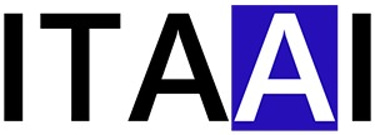Entry level accounting jobs
No all accounting jobs require years of study and training. Here is a list of entry level accounting jobs that can be started with just a month of learning.
Irfan Sharif, ACA, ACCA
1/18/20253 min read


Accounting Jobs You Can Start with Just a Month of Learning
Accounting is often viewed as a complex field requiring years of education and training. While advanced roles like financial analysts or auditors do demand higher qualifications, there are many entry-level accounting jobs that you can prepare for in as little as a month of focused learning. With dedication, some basic understanding of financial principles, and familiarity with accounting software, you can jumpstart your career in this lucrative and in-demand field. Here are five accounting jobs you can start with minimal training:
1. Bookkeeper
A bookkeeper plays a fundamental role in managing a company’s financial records. They are responsible for recording daily transactions, reconciling bank statements, and maintaining the general ledger.
Why it’s easy to start:
Bookkeeping primarily requires knowledge of basic accounting principles and proficiency with software like QuickBooks or Excel. With just a month of learning, you can grasp key skills such as double-entry bookkeeping and recording income and expenses. Many online resources and courses focus specifically on bookkeeping, making it a straightforward entry point into accounting.
Opportunities:
Every small business needs a bookkeeper, so opportunities are abundant in various industries. You can even offer freelance bookkeeping services.
2. Accounts Receivables Manager
An accounts receivables manager ensures that customers pay their dues on time. They oversee invoices, follow up on outstanding payments, and manage records related to incoming funds.
Why it’s easy to start:
The role revolves around organizational skills and attention to detail. By learning invoicing systems, payment tracking, and customer communication strategies, you can be ready for this job in no time.
Opportunities:
Many companies, especially in retail or service industries, require accounts receivables specialists to ensure a steady cash flow.
3. Accounts Payable Manager
As the counterpart to accounts receivables, an accounts payable manager handles outgoing payments. This includes managing vendor invoices, ensuring timely payments, and maintaining accurate records of expenses.
Why it’s easy to start:
This role primarily requires an understanding of invoice processing and basic accounting practices. Familiarity with expense tracking software and attention to detail are critical, and these skills can be learned through short courses and practice.
Opportunities:
Accounts payable roles are crucial in businesses of all sizes, making this a stable job choice.
4. Inventory Accountant
Inventory accountants focus on tracking and managing stock levels, ensuring accurate records of inventory purchases, usage, and remaining supplies. This role is particularly important in retail and manufacturing industries.
Why it’s easy to start:
Learning how to use inventory management software and understanding inventory valuation methods, like FIFO or LIFO, are the main requirements. These can be mastered quickly through online tutorials and practice.
Opportunities:
Small and medium-sized businesses often hire inventory accountants to optimize their stock management.
5. Bank Reconciliation Specialist
Bank reconciliation specialists ensure that a company’s bank statements match its accounting records. They identify discrepancies, correct errors, and maintain financial accuracy.
Why it’s easy to start:
The core skill here is understanding how to reconcile accounts, which can be learned through short training programs. Familiarity with basic accounting software is also helpful.
Opportunities:
This role is in demand across various industries, as accurate bank reconciliation is essential for financial reporting.
Final Thoughts
These accounting roles demonstrate that you don’t need years of study to enter the field. With a month of dedicated learning, you can acquire the skills needed for positions like bookkeeper, accounts receivables manager, or inventory accountant. The key is to focus on the specific requirements of each job and practice using relevant tools and software. By starting small, you can build valuable experience and gradually progress toward more advanced roles in accounting. Whether you’re looking for a career change or a way to earn income quickly, these jobs offer an accessible pathway to success in the accounting world.
ITAAI
Transforming accounting through advanced technology solutions.
contact@itaai.com
© 2025. All rights reserved.
